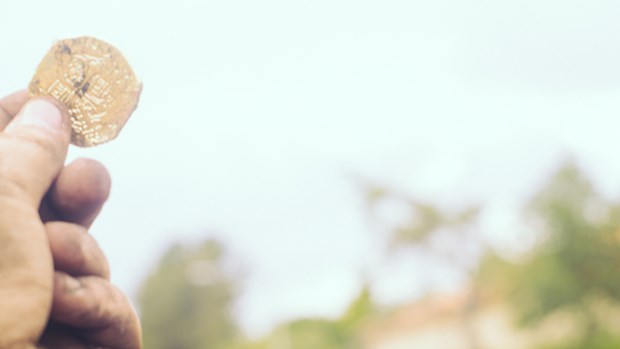
Can you imagine what Joshua was thinking the day he led the children of Israel into the Promised Land? For 40 years they had been wandering, and for 40 years they experienced the freedom from Egypt only to be held captive by their own lack of faith.
They were led solely by the sovereignty and providence of God—a pillar of cloud by day and a pillar of fire by night. They ate only manna and meat, and even then they had to gather it fresh every single day: “Some gathered a lot, some only a little. But when they measured it out, everyone had just enough. Those who gathered a lot had nothing left over, and those who gathered only a little had enough. Each family had just what it needed” (Exodus 16:17–18).
For many years, this is how I viewed my walk with the Lord. He has always been good to me, consistently proving himself sovereign. There was always a pillar to follow, whether that came in a divinely timed devotion or the wise words of a mentor. And the manna was there every morning without fail, sustaining me for all I would need that day—but never was there excess.
It felt like the Lord and I were getting by with little to spare. We were eking through this life, him providing, me gathering, but it always felt tiresome and heavy. Life was often exhausting.
Homesick for the Wilderness
But sometimes God surprises you, and the walls of Jericho fall, and the pillars lead to the Promised Land, and then what do you do? How do you adjust to a land flowing with milk and honey when you’re used to quail and manna?
In the last year, these are the questions I’ve been asking as opportunities and blessings pour into my life. Relationships are rich and deep. My job is satisfying. My needs and wants are met in abundance. I’m blessed with books to read (and write!), babies to hold, and mountains to climb—literally.
But instead of absorbing all of this and basking in all the Lord has done, I can feel myself growing skeptical. The honey sticks to the roof of my mouth, and the milk seems too thick to swallow. What happens when the blessings no longer come? What happens if I wandered around for 40 years only to briefly pass through the Promised Land? What if this time is a respite from the wandering and not a final destination?
Then God is still good. That’s what I have learned. If God is good in the wandering, he’s good in the blessing. And if he’s good in giving the blessings, he’s good in taking them away as well.
“I came naked from my mother’s womb,
and I will be naked when I leave.
The LORD gave me what I had,
and the LORD has taken it away.
Praise the name of the LORD!” (Job 1:21)
It’s all his anyway. Every bit of money and every book proposal and every ounce of love and ambition in our bones—they’re all his. And it’s refreshing to remember that we are not responsible for getting ourselves to the Promised Land or keeping ourselves there; we’re only responsible for doing much with what we’ve been given, manna and milk alike.
We can often feel like the servant with only one talent from the Matthew 25 parable. Some years we bury that single talent, too scared to lose it. And some years we trade it for a new pair of shoes instead of multiplying it as we should. But now, when the time comes and we’re the servants standing there, hands overflowing with talents, we might feel more scared than when we had just one—because to whom much has been given, much more will be required (Luke 12:48).
And this is the dangerous side, the terrifying side, of blessing. To have much is to be expected to give much, to love much, to do much. Squandering is no longer an option. So now comes the task we’ve had all along: Serve God with everything we have, whether that’s much or little. And when our much becomes little or our little becomes much, realize none of it was really ours to begin with.
In our seasons of wilderness wandering and parading into the Promised Land, may the Lord continue to remind us of his sovereignty in all things, his goodness every day, and his glory that knows no end.
Read more articles that highlight writing by Christian women at ChristianityToday.com/Women
 Read These Next
Read These Next

 When Believers Break Up3 truths to hold on to
When Believers Break Up3 truths to hold on to
 When I Consider the Heavens...Catching a glimpse of just how big our God is
When I Consider the Heavens...Catching a glimpse of just how big our God is
 Leading Those Who Are Different from YouFrom gender to race to politics to class, here’s what it takes to lead across differences.
Leading Those Who Are Different from YouFrom gender to race to politics to class, here’s what it takes to lead across differences.








 Homepage
Homepage
